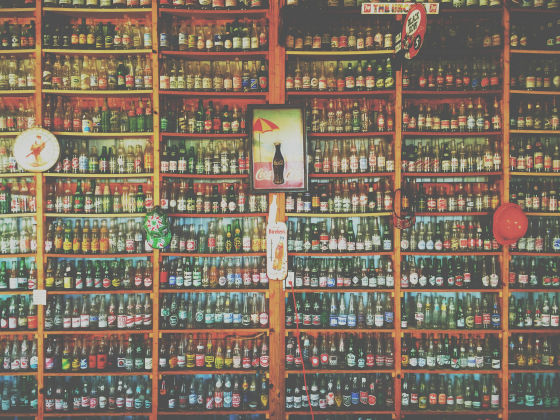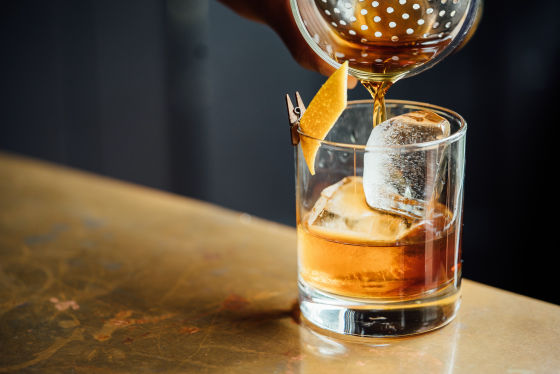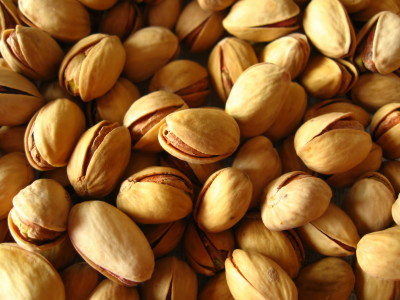Why was the fact that "alcohol is at risk of causing breast cancer" to be overlooked?

byAnnie Spratt
Information media "Mother JonesIt is a writer ofStephanie MensimarIs a woman who had surgery from breast cancer. Mensimer who is sensitive to health information understood that it is carcinogenic in sugar, plastics, sunscreen etc, but as for alcohol, "wine prevents heart disease", "moderate drinking is health It was good for you. " However, the fact that alcohol is carcinogenic has been shown as an unchallenged fact from previous studies. Why was such a misunderstanding born? It is clarified from the history of alcohol industry about that.
Did Drinking Give Me Breast Cancer? - Mother Jones
https://www.motherjones.com/politics/2018/04/did-drinking-give-me-breast-cancer/
In 1988, the International Cancer Institute (IARC), an external organization of the World Health Organization (WHO)Group 1 carcinogenic substanceIt was classified into. Alcohol is believed to be responsible for at least seven types of cancer, among which breast cancer is killing many women and IARC presumes a 7% increase in the risk of breast cancer when drinking everyday I will. The relationship between drinking and breast cancer is obvious from more than 100 research results done over the past few decades and it is not even a matter of debate. However, the safe amount of alcohol intake is not clear, and the American National Cancer Institute shows that raising the risk of breast cancer even at low levels of alcohol intake.
Mensimer, sensitive to health news, said he was surprised to find cancer by saying, "I knew that wine would lower the risk of heart disease, but I never heard of causing cancer." . And there are a number of things related to cancer, such as sugar, plastic, milk, shampoo and sunscreen, why only alcohol is missing from it? It began to think.
The relationship between cancer and alcohol has been studied since the 1970 's. According to research, when drinking alcohol, even if the enzyme present in the mouth is a trace amount, alcoholAcetaldehyde. Therefore, people who drink more than 3 cups a day have a 2 to 3 times higher probability of becoming oral cancer than those who do not drink. Alcohol is also known to destroy cells in the mouth and is known to raise the risk of cancer of the esophagus and mouth as well as smoking. From the mouth through the throat to the large intestine, alcohol converted to acetaldehyde will continue to hurt the cells. The liver is known as a detoxifying organ, but alcohol hurts liver tissue, brings alcoholic liver cirrhosis and raises the risk of liver cancer.
Alcohol also increases the level of estrogen in female bodies and promotes cell division in the chest. Alcohol is believed to cause breast cancer, as mutation occurs in cell division and ultimately produces a tumor.

byBenjamin Balázs
Researchers see the proportion of cases in which alcohol is considered to be involved in breast cancer in the United States as about 15% of the total, about three times the case caused by a mutation in the gene called BRCA. The risk that alcohol causes breast cancer is about twice the number of women dead by drunk driving, although smoking is small compared to the risk of causing lung cancer. Also,MammographyIt is said that it is possible to reduce the risk of death by breast cancer by 25% by receiving it, but since lifestyle risk of disease increases by 15 to 25% by drinking two or three times a day, alcohol causes mammogramy If you cancel the effect, Professor Walter Willett, an epidemiologist at Harvard TH Chan School of Public Health, says.
When the relation between alcohol and cancer becomes clear, public health campaign began in various areas, and California Province in 1988 calls for warning labels to be drunk as 'cause of cancer' . Due to such a campaign, alcohol industry sales declined, the industry launched a bold campaign.
One of the campaign was to re-branch the alcohol as a "healthy lifestyle" like a salad or jogging. The initiative of the campaign was in the wine industry, a wine grower called California wine fatherRobert MondaviMrRabbiAnd the doctor took on the tour claiming that "moderate drinking has benefits for health" and appealed the health benefits of wine. In the New York Times in 1988, Mondavi said "wines have been praised for centuries by rulers, philosophers, doctors, clergy, poets who sing life, health and well-being" It is said that it is being done.
Also, a journalist Mr. Seyfa said "French people eat red meat, cheese, cream etc. abundantly, but the rate of heart disease is lower than that of Americans is less" on the TV program "60 Minutes" I argued that the key to solving this paradox lies in the wine.

byKelsey Knight Follow Message
Twenty thousand people watch the program that Mr. Seifer appeared, which triggered the sales of wine to rise to the eel. After that, the researchers showed that "the proportion of French people becoming cardiac disease is higher than advertised," and in another episode of the program the French government took strict rules on alcohol advertising in order to eradicate cirrhosis It was televised that it passed through, but said that wine popularity never wane.
The broadcast of 60 Minutes has become a catalyst for alcohol to become part of "healthy eating habits".
However, in order to sell alcohol as a health product, we needed a PR backed up by science. Therefore, in 1982 "Alcoholic Beverage Medical Research Foundation" was founded. Mr. Thomas Turner, Dean of Johns Hopkins University Medical School, who was involved in the foundation of the foundation,Forward Together: Industry and AcademiaIn collaboration with the president of the world's largest beer company, he writes how he created the foundation, in a book named "Industry and Academic Transfer (Industry and Academic)". According to Mr. Turner, the Foundation has invested in over 500 alcohol research so far and has given grants to numerous researchers and universities. One of them is Professor Arthur Kratsky, an insurance company · researcher of Kaiser Permanente.

byTaylor Swayze
In the 1970 's, Professor Kratzky accessed patient' s drinking information etc from Kaiser 's health system. In 1974, he published a paper suggesting that "light drinking lowers the risk of heart disease". Following this, the foundation invested in Professor Kartsky's data collection and the relationship continued between 1975 and 1991. Approximately 1.7 million dollars (about 180 million yen) was invested in Professor Kartsky's study on alcohol and health. Professor Kaltzky's research content often appears in the media as of 2018, but in most of it the relationship between researcher and industry is not mentioned.
In addition, Professor Kartsky says that his research is objective and that the content is not twisted by the investment made from the Foundation. In the early work of Professor Kartsky assisted by the Foundation, there are things that drinkers raise the risk of high blood pressure and the relation between alcohol and breast cancer, and they are looking at both aspects of alcohol problem The professor says. Besides this, there are cases where the foundation invested in research that alleged alcohol has an adverse effect on health.
On the other hand, many government officials working on alcohol policy have been involved in the alcohol industry in the past 20 years. A remarkable example is Samir Zahari, a former representative of the National Laboratory for Alcoholism and Alcohol Addiction (NIAAA), Dr. Zahari has taken office as a scientific office representative of the American Distilled Liquor Association after leaving NIAAA . NIAAA has long recognized that alcohol intake increases breast cancer and the American Distilled Liquor Association admitted about that, but in 2015 Mr. Zakhari said that "a strong evidence that moderate drinking will increase breast cancer There is no health benefit for moderate drinking. " Industry associations use this article to dodge the government 's recommendations on alcohol consumption in the UK.
Dr. Zahari stated that the above article is "reflecting my personal scientific opinion." "After I retired from the National Institute of Health, I trusted the enthusiasm of the American Distilled Liquor Association on alcohol consumption and came to Congress, no matter where I am employed, my devotion based on scientific research is the same It is said. Moreover, it is said that Zahari's connection with NIAAA is also after retirement.
For many years, scientists have recognized that doing so much drinking causes hypertension, stroke, heart attacks. From that point on, the hypothesis was made that "people who do not drink alcohol have a lower risk of becoming heart disease than people who do moderate drinking" were investigated, but the results of the survey were " People who do not drink will have as much heart disease as drinkers. "

byAdam Jaime
However, there are suspicious points in this research result. Epidemiologist Gerald Scheper has been doing various studies on the health of the heart since the end of the 1970s. According to Mr. Shaper's survey, 71% of "people who do not drink" was said to have been "drunk before, but who quit drinking." Some people said they had both drinking and smoking, and Shiper said, "People who drunk before drinking are more likely to get sick than a drunkard who is drinking," I am concluding. In other words, because the health problem has been raised, people who stopped drinking are included in the control group as "people who do not drink", so there is a possibility that the conclusion may have been wrong.
For decades, researchers have said "ex-drinkers" in the control group and talked about the benefits of moderate drinking, Mensimer says.
In response to this situation, Mr. Kay Middleton Fillmore of San Francisco University in California started research on "former drinkers" since the mid 2000s, but no one in the United States had invested in her research Thing. For this reason Mr. Fillmore has been invested by the National Institute of Pharmaceutical Sciences in Australia for research.
As a result of Mr. Fillmore's research, excluding those who used to be ex-drinkers as subjects, almost all those who showed benefits for alcohol's heart disease disappeared. Following this research, several research findings have been announced that drinking will not benefit heart disease afterwards. Robert Brewer of the American Center for Disease Control and Prevention said, "Scientific research does not support the benefit of moderate drinking," the US Department of Agriculture said from the American dietary guidelines "Alcohol reduces the risk of heart disease It may be that I pulled out the phrase "might be".
However, "the influence on health caused by moderate alcohol intake" is yet to be discussed, and the New York Times is investigating a $ 100 million (about 10.6 billion yen) research at the NIAAA with a 10-year plan I report it.
Doubt that alcoholic beverages industry has made funds easier for scientists working on alcohol - GIGAZINE

According to the New York Times, two scientists involved in the research and one authority official present a presentation at a hotel in Palm Beach, Florida in 2014, offering more than half the research expenses of $ 67.7 million (about 7 billion yen) He told me he received a story from five alcoholic companies. It is pointed out that this is contrary to the NIH 's prohibition of recruitment / suggestion such as donation and support money.
Meanwhile, while knowing the relationship between alcohol and breast cancer, the alcohol industry started marketing for women to drink alcohol. In addition to presenting a stress relieving method for alcohol to a stressful woman, a product with the name of "nominating donation to charity to women of breast cancer" was also created by displaying advertisement pink ribbons.

These marketing worked well and despite the idea that "it is difficult to target women to alcohol consumption" in the 2000s, women's drinking increased by 16% from 2001 to 2013. In particular, it was White women who had the greatest change, and in conjunction with this, it is said that the fatality rate of Caucasian white women related to alcohol has more than doubled from 1999 to 2015.
Advertising campaigns will be conducted in Britain and Australia other than the United States as alcohol hazards are recognized. The following movies were televised in Western Australia in 2010, it is said that alcohol is a carcinogenic substance by overlapping red wine spilled on a white tablecloth and blood image.
WA Alcohol and Drug Office 'Spread' ad by The Brand Agency - YouTube
In 2010, WHO has announced an international strategy to reduce alcohol harm and guidelines for restricting drinking in Korea, the Netherlands, the UK, Ireland, etc. are announced. British doctor Sally Davis said, "If there are 1000 women, if you do not drink alcohol, 110 of them will be breast cancer.When you do a limit amount of drinking as indicated in the UK guidelines, Another 20 people will become breast cancer, and if you drink twice as much as the prescribed amount of guidelines, 50 more women will become breast cancer, "I am speaking.
Over the past few decades, the alcohol industry has abandoned public health regulations trying to reduce dangerous alcohol consumption. The supermarket was able to deal with alcohol that could not be handled on Sunday and the time limit for alcohol treatment at bars and restaurants was removed and as a result the alcohol consumption per capita recorded the lowest record in 1997 was 20 It has risen to the level which has not been seen so far in the year. According to David Jernigan, representative of Center on Alcohol Marketing and Youth at Johns Hopkins University, the alcohol industry's advertising expenditure in 2016 was $ 2.1 billion (about 230 billion yen) without online advertisement, The cost to lobbying was 30.5 billion dollars (about 3.8 trillion yen). Even looking at the American Distilled Liquor Association alone, the cost of lobbying is 5.6 billion dollars (about 600 billion yen). "Alcohol is for people who make lawFirst-line drug"Mr. Jernigan said.
Mensimar, who received surgery for breast cancer, will receive instructions to visit a dietician from a cancer specialist after surgery. As a dietitian intake a lot of fish and flaxseed, and processed meat such as sausage and bacon, and gluten burger which increases estrogen are included as carcinogenic, as avoiding taking beans and beans with broccoli like broccoli etc It is explained. However, it was said that alcohol was not included in foods cited as carcinogens. It is more important to avoid alcohol than to eat broccoli, but even cancer specialists may not tell patients "to avoid alcohol" messages.
According to a study by the American Society of Clinical Oncology, 70% of Americans do not consider alcohol to be a carcinogen. In order to change this situation, the American Society of Clinical Oncology announced "Alcohol has a risk of causing cancer" and demanded policy measures to reduce alcohol consumption and avoid cancer.
Organizations that fought with the alcohol industry through lobbying activities, such as the American Medical Association (AMA), have ceased their activities in the 2000s. Richard Joast, who operated AMA's alcohol program until 2005 when AMA ceased anti-alcohol activity in 2005, said, "One of the causes of early death and illness is ignored by almost all organizations in the health sector The situation that it is being done is surprising, "explains the current situation on alcohol. In addition, the government subsidy that reduces the risk of alcohol was 25 million dollars (about 2.7 billion yen) in 2009, but it is zero in 2015.

byEdu Lauton
Mark Pettikulu, a public health professor at the London School of Heidgen & Tropical Medicine, said, "Alcoholic websites and non-profit organizations actively misunderstand the relationship between alcohol and cancer We are announcing the results of research that we are doing. The alcohol industry confuses the reader by giving people the impression that only drunk drinks increase the risk of cancer and preparing a list of enormous risk factors. As female alcohol consumers are more conscious of health than men, in particular, breast cancer tends to be misunderstood.
It is not certain whether Mensima 's cancer was caused by alcohol. In the Danish study published in December 2017, the risk of breast cancer due to contraceptives is higher than that thought so farIt is shown to be high. However, Mensimer says that if she correctly recognized the information about the relationship between breast cancer and alcohol, she stopped drinking when she was young. Which is chosen is for each person, but smokers do smoking after understanding the dangers of tobacco. However, regarding alcohol, Mensimer said that the industry with power is keeping information away from young women.
Related Posts:
in Science, Posted by darkhorse_log







